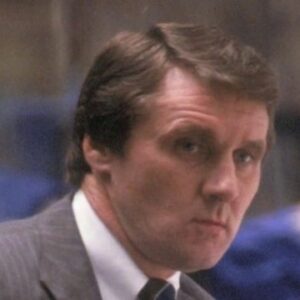Ice hockey player and coach Herbert Paul Brooks Jr. was from the United States. Early ice hockey participation led to success in high school and college for the player. He participated in two Olympics as a player for his nation but was unsuccessful in winning a medal. He started out as a coach at the University of Minnesota and later turned around their fortunes. He was appointed the Olympic hockey team’s head coach. He placed a strong emphasis on physical fitness and used fear to push his team members so that they forgot about intramural competition and saw their coach as a shared foe. Most analysts believed that if the US competed to the best of their skills, they may win a bronze medal when the winter games actually began. The squad made good progress and faced off against the Russians in the medal round. The Soviet invasion of Afghanistan was in progress, and the US had just announced that it would boycott the Olympics in Moscow. It was the height of the Cold War between the superpowers. The Soviets were also regarded as the favorites. Brooks and his team were hailed as heroes after the Americans defeated the Russian. In addition, Brooks led a US team to a silver medal at the Olympics. He was admitted to the Hockey Hall of Fame after his passing.
Early Childhood & Life
Herbert Brooks, Sr. and Pauline Brooks welcomed Herb Brooks into the world on August 5, 1937, in Saint Paul, Minnesota. He grew up in a humble duplex on the East side of St. Paul as the oldest of three kids.
He graduated from Johnson High School, where he helped his school win the Minnesota high school championship. From 1955 to 1959, he kept on playing for the University of Minnesota Gophers.
Employment and Later Life
Herb Brooks was initially listed on the 1960 Olympic roster, but a week before the games, his name was removed. He worked harder in spite of his disappointment. He made the team for the following two Olympics, but he failed to win a medal.
As an assistant coach for his alma mater, the University of Minnesota, he started his coaching career in 1969. The following year, he took over as head coach of the Minnesota Junior Stars.
He was appointed the University of Minnesota’s head coach. Between 1974 and 1979, the team won a WCHA championship in addition to three NCAA Division I championships.
His final coaching record at the collegiate level was 175 victories, 101 defeats, and 20 draws. In 1979, he was chosen to lead the Olympic squad, and he personally selected a number of Minnesota Boston University athletes.
Brooks created a mix of the speedier European style and the American and Canadian styles that placed an emphasis on inventiveness and teamwork in order to compete primarily with the Soviet Union squad.
In his view, one of the reasons the Soviet team had won the international competition was that many of their rivals were worn out by the third quarter, thus he stressed the importance of player fitness.
He declined to coach in the NHL shortly after his Olympic triumph. He decided to travel to Switzerland instead. For one season, he served as Daro’s head coach in the Swiss Elite League.
He served as a coach with the New York Rangers in the National Hockey League from 1981 to 1985, where he became the first American-born coach in team history to win 100 games.
He served as the Director of Player Personnel for two years before to his passing while coaching NFL clubs such the Minnesota North Stars, New Jersey Devils, and Pittsburgh Penguins between 1987 and 2000.
When he accepted the offer to lead the French national team in the 1997 World Championship and the 1998 Olympics in Nagano, he discovered that they were talented but disorganized, and they finished in 11th place.
Recognition & Achievements
In 2002, Brooks was given one of hockey’s highest honors, the Lester Patrick Award. The award is named after Lester Patrick, an ice hockey pioneer who also served as a player and coach.
He was posthumously admitted to the Hockey Hall of Fame in 2006. A generation of Americans was motivated to achieve their ambitions by Herb Brooks, who was described in the inscription as “a man of passion and determination.”
In the “Miracle on Ice” game against the heavily favored Soviet team in Lake Placid in 1980, Brooks served as the head coach of the gold-medal-winning US Olympic hockey team.
He led the US team for a second time at the Salt Lake City Olympics in 2002. They defeated Russia in the semifinal, but Canada defeated them 2–5 to win the gold.
Personal Legacy & Life
In 1965, Brooks wed Patti, and together they had Danny and Kelly.
The Olympic ice rink in Lake Placid, New York, where the United States won the gold medal, was renamed, Herb
Brooks Arena as part of the 25th-anniversary celebration of the “Miracle on Ice.”
The “best-qualified hockey player” in the state tournament receives the Herb Brooks Award at the completion of the Minnesota State High School League’s state hockey tournament.
On August 11, 2003, he was killed in a single-car collision on Interstate 35 close to Forest Lake, Minnesota.
Herb Brooks’s Net Worth
Herb is among the wealthiest and most well-known hockey coaches. Herb Brooks’ net worth is roughly $1.5 million, according to our analysis of data from sources like Wikipedia, Forbes, and Business Insider.
Trivia
“My recruiting strategy – I looked for PEOPLE first, athletes second,” this American ice hockey coach once said. Since ideals cannot be purchased, I sought those with strong moral principles.
The men’s team for the 1980 US Olympic “Miracle on Ice” was made up of more than half Minnesota natives, who also served as their coach.


